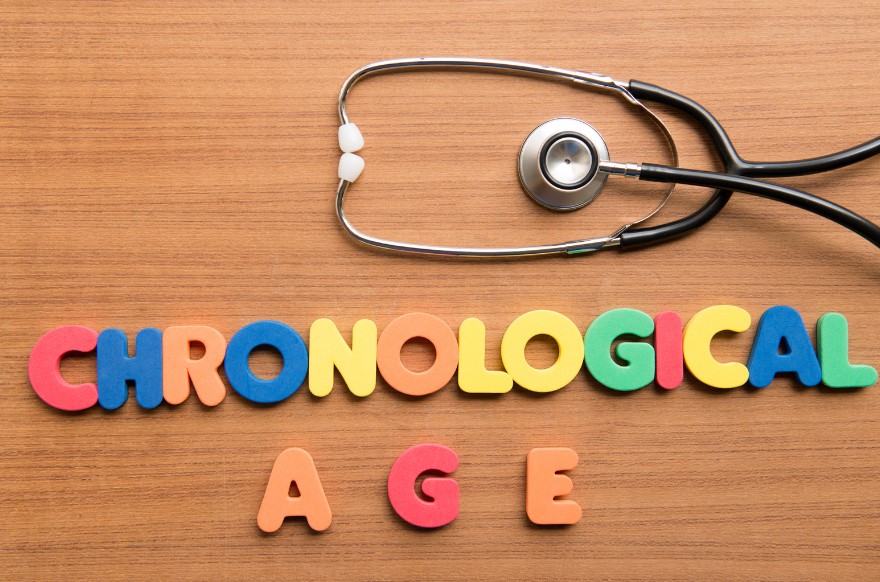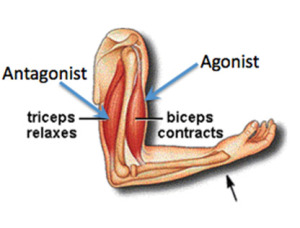The inexorable march of time is a universal experience, yet how we age—visibly and internally—can vary dramatically from person to person. This divergence is often attributed to the difference between chronological age and biological age.
While your chronological age is a fixed number, your biological age can reflect your overall health and well-being. This article aims to delve into the intricacies of these two age types, elucidate their relevance to aging adults, and offer actionable advice for optimizing your biological age.
Chronological vs. Biological
Chronological Age
Chronological age is a straightforward metric calculated from your birth date. It’s a constant you can’t alter as a linear measure of the time you’ve spent alive.
Biological Age
Biological age, however, is a more fluid concept. It gauges the age of your cells and tissues based on various physiological markers. Unlike chronological age, biological age can fluctuate, influenced by lifestyle choices, environmental factors, and mental state.
The Personal Relevance for Aging Adults
Understanding the difference between chronological and biological age is not merely academic; it has practical implications for your health and quality of life as you age.
A lower biological age can signify better cardiovascular health, cognitive function, and lower risk of chronic diseases. Conversely, a higher biological age may be a wake-up call, indicating potential underlying health issues.
How to Determine Your Biological Age:
Determining your biological age is not as straightforward as knowing your chronological age. Biological age requires a more nuanced approach, often involving a combination of medical tests, lifestyle assessments, and even specialized calculators designed to evaluate various health markers.
Though a bit of work goes into making this determination, the results are well worth the effort!
Medical Tests
- Telomere Length: Telomeres are the protective caps at the end of chromosomes. Their length can serve as a biological clock, indicating cellular age. Shorter telomeres are generally associated with a higher biological age.
- Blood Tests: Certain blood markers like cholesterol levels, triglycerides, and blood sugar can provide insights into your metabolic health, closely tied to your biological age.
- DNA Methylation: This advanced test looks at the gene expression patterns in your DNA. Changes in these patterns can indicate aging at the genetic level.
Lifestyle Assessments
- Physical Fitness Tests: Your exercise performance can be a good indicator. For example, cardiovascular endurance tests can provide heart and lung health data.
- Nutritional Analysis: A detailed look at your dietary habits can reveal deficiencies or excesses that might be aging you prematurely.
- Stress Levels: Chronic stress has been linked to accelerated biological aging. Psychological assessments can help gauge your stress levels and their impact on your biological age.
Specialized Calculators
There are online tools and calculators designed to estimate your biological age. These often require you to input various data, from basic information like height and weight to more specific medical test results.
While not as precise as medical tests, they can offer a general idea of where you stand.
Consult a Healthcare Provider
It’s advisable to consult healthcare professionals who can conduct a comprehensive evaluation, including the necessary medical and lifestyle assessments, for the most accurate assessment.
By understanding your biological age, you gain more than just a number; you acquire a valuable metric that can guide you in making informed decisions about your health and lifestyle.
Ten Factors That Can Accelerate Biological Aging
- High Blood Pressure: Constantly elevated blood pressure strains the heart and damages arteries, accelerating aging.
- Diabetes: High blood sugar levels can lead to cellular damage, affecting multiple organs and systems.
- Lack of Exercise: Physical inactivity produces poor cardiovascular and muscular health, contributing to faster biological aging.
- Poor Diet: Consuming foods high in sugar and fats but low in essential nutrients can lead to metabolic imbalances and oxidative stress.
- Stress: Chronic stress triggers inflammation and hormonal imbalances, speeding cellular aging.
- Smoking: Introduces harmful toxins into the body, causing oxidative stress and cellular damage.
- Poor Sleep: Insufficient or poor-quality sleep disrupts metabolic and hormonal balance, affecting cellular repair mechanisms.
- Environmental Toxins: Exposure to pollutants and chemicals can cause cellular damage and contribute to chronic diseases.
- Chronic Illness: Conditions like arthritis or neurodegenerative diseases can cause systemic inflammation, accelerating biological aging.
- Genetic Predisposition: While you can’t change your genes, they can influence how quickly you age biologically.
Ten Ways to Turn Back the Biological Clock
- Regular Exercise: Engaging in physical activity improves cardiovascular health, enhances lung function, and boosts mental well-being.
- Healthy Diet: Consuming foods with a low glycemic index can stabilize blood sugar levels and reduce inflammation.
- Stress Management: Techniques like mindfulness and meditation can lower cortisol levels, reducing the rate of cellular aging.
- Quitting Smoking: Eliminating tobacco use reduces the body’s exposure to harmful toxins, allowing cellular repair mechanisms to work more efficiently.
- Quality Sleep: Adequate sleep allows the body to repair itself, improving metabolic and hormonal balance.
- Environmental Choices: Opting for cleaner, less polluted living conditions can reduce exposure to environmental toxins.
- Regular Check-ups: Monitoring health markers can provide early warnings, allowing for preventive action.
- Mental Stimulation: Activities like reading, puzzles, and social engagement keep the brain active, potentially delaying cognitive aging.
- Social Engagement: A robust social life can reduce stress and increase feelings of well-being, positively affecting your biological age.
- Positive Attitude: A hopeful and optimistic outlook can surprisingly impact your physiology, including your biological age.
If you find that your biological age is outpacing your chronological age, do not despair. You have the power to make meaningful changes at any stage of life.
For instance, incorporating a balanced diet rich in fruits, vegetables, and whole grains can significantly improve your metabolic markers.
Similarly, adopting a regular exercise regimen, even if you’re starting in your 70s or beyond, can transform your cardiovascular health.
In essence, your biological age is not a life sentence but a vital sign—a dynamic indicator of your overall health that you have the agency to improve.
Joe Carson B.S. NASM-CPT/FAS/CN
Master Trainer/Functional Aging Specialist/Certified Nutritionist
Twenty-First Century Aging





